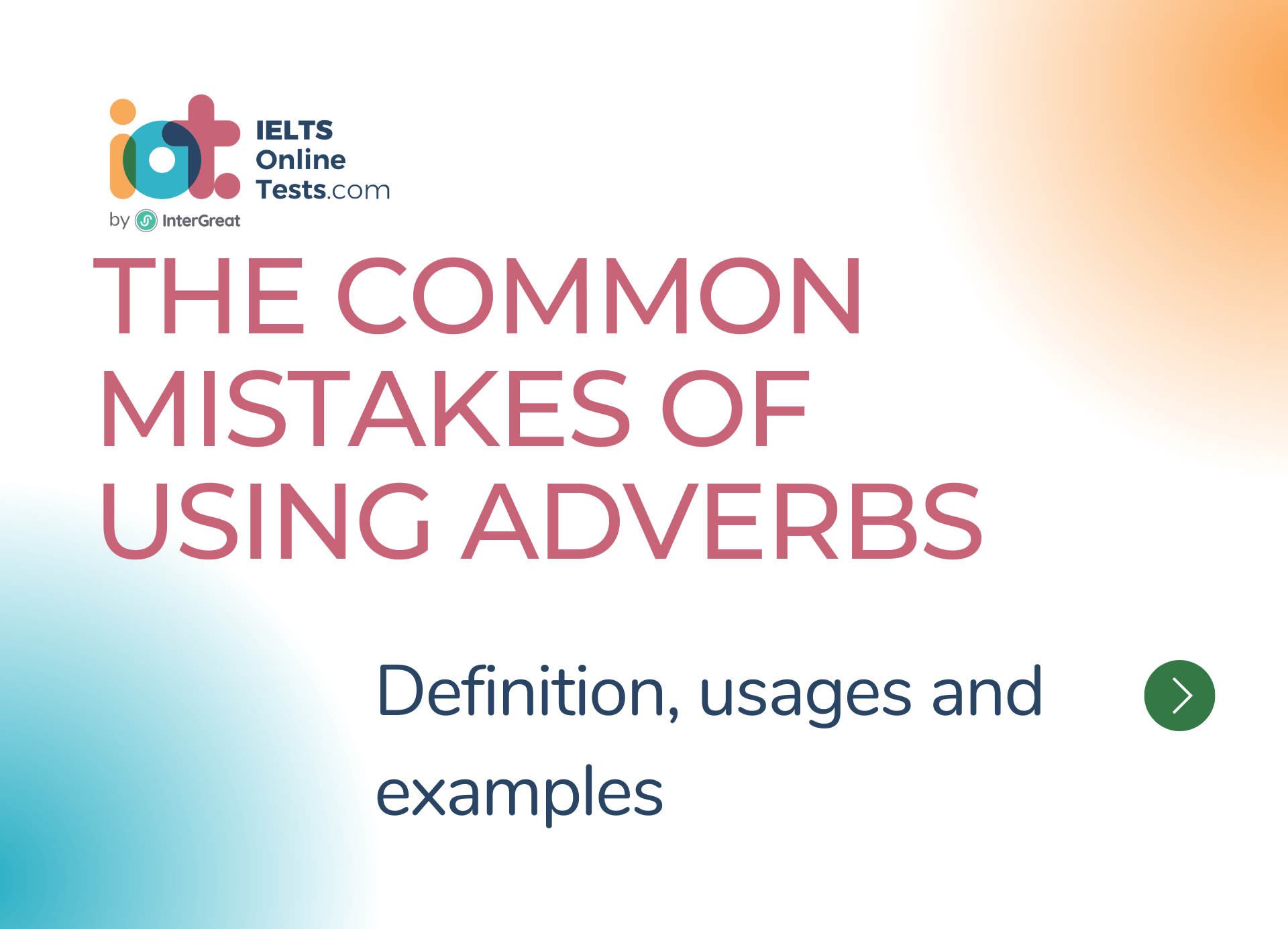
The common mistakes of using adverbs
Here are some common mistakes related to the use of adverbs that you should be aware of:
Misplacing Adverbs: One common mistake is placing adverbs in the wrong position within a sentence. Adverbs should be placed in a way that clearly indicates which word or phrase they are modifying.
For example:
- Incorrect: "She only speaks Spanish." (implies that she speaks Spanish but does nothing else)
- Correct: "She speaks Spanish only." or "She speaks only Spanish." (specifies that she speaks only the Spanish language)
Overusing Intensifiers: Intensifiers such as "very," "extremely," or "really" should be used judiciously. Overusing them can make writing or speech sound exaggerated or less precise. It's better to choose stronger, more specific adjectives or adverbs instead of relying heavily on intensifiers.
Overusing "Very":
- "The movie was very, very good. I really enjoyed it."
Overusing "Really":
- "He is really, really tall. I mean really, really, really tall!"
Overusing "Extremely":
- "The weather is extremely, extremely hot. I am extremely, extremely sweaty."
Overusing "Absolutely":
- "He is absolutely, absolutely brilliant. He is absolutely the best."
Overusing "Incredibly":
- "That concert was incredibly, incredibly amazing. The singer was incredibly, incredibly talented."
Confusing Adjectives and Adverbs: Sometimes, people mistakenly use adjectives instead of adverbs or vice versa. Adjectives modify nouns, while adverbs modify verbs, adjectives, or other adverbs. Using an adjective in place of an adverb can lead to grammatically incorrect sentences.
- Incorrect: "He speaks quick." (should be "quickly" since it modifies the verb "speaks")
- Correct: "He speaks quickly."
Failing to Use Comparative or Superlative Forms: When comparing two or more things, it's important to use the correct comparative or superlative form of the adverb. Neglecting to do so can result in incorrect comparisons.
- Incorrect: "She sings more goodly than her sister." (should be "better" as the comparative form of "well")
- Correct: "She sings better than her sister."
Not Considering Adverb Placement for Clarity: Adverb placement plays a crucial role in conveying the intended meaning of a sentence. In some cases, misplacing an adverb can lead to ambiguity or confusion.
- Ambiguous: "He only told her yesterday." (unclear whether he did anything else besides telling)
- Clearer: "He told her only yesterday." or "He told only her yesterday."
To avoid these common mistakes, it's important to pay attention to the correct placement of adverbs, choose appropriate intensifiers, differentiate between adjectives and adverbs, use the correct forms when comparing, and consider adverb placement for clarity and precision in your writing or speech.




